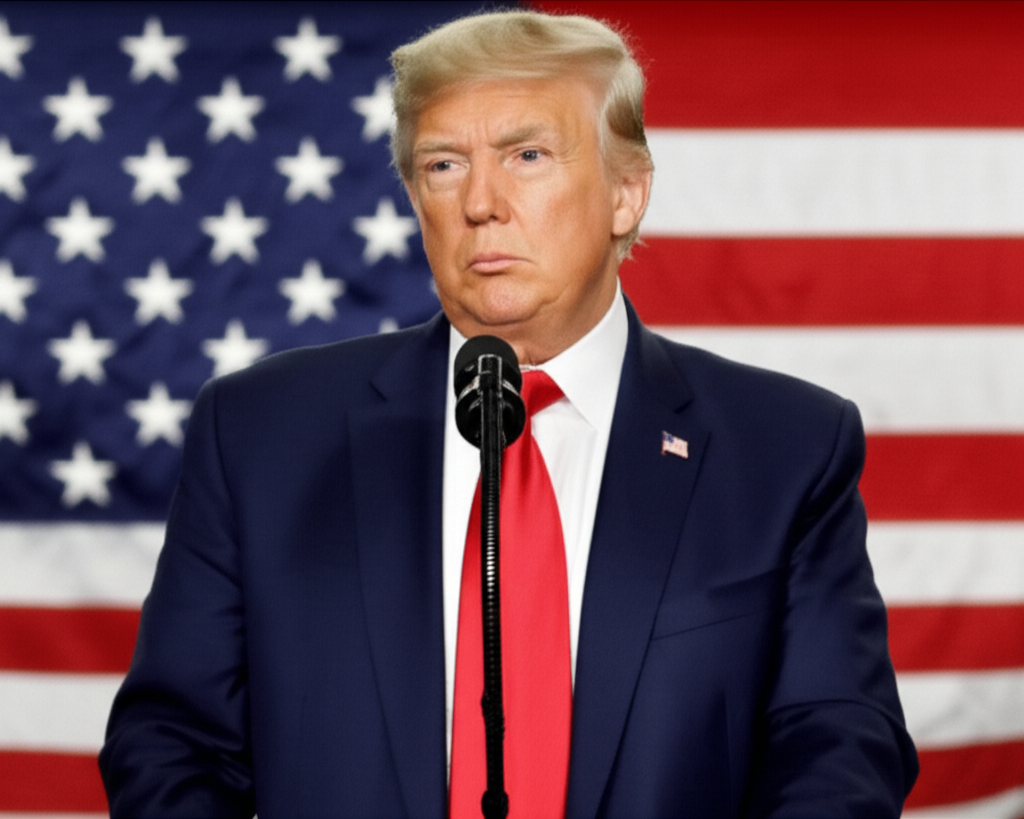Trump at the UN: A Rollercoaster Ride Through “America First” Diplomacy

Introduction: When the UN Met Trump
The annual UN General Assembly: a diplomatic high mass, usually a carefully choreographed marathon of measured pronouncements and painstakingly negotiated resolutions. Imagine, then, the intrusion of a brass band into a string quartet concert. Enter Donald Trump. His arrival represented not merely a change in leadership, but a seismic shift in diplomatic decorum, injecting a dose of “America First” unfiltered into the veins of the international body. We aren’t simply talking about policy differences; we’re examining a fundamental clash of philosophies.
What we’ll explore is how Trump uniquely interpreted global issues, the traditions he shattered, the uproar he triggered, and the long-term implications of it all. It’s a journey into the heart of a presidency that questioned the very foundations of the post-World War II world order.
The Trump UN Playbook: “America First” and Chill (or Not)
The core tenet? Prioritizing the Homeland. It wasn’t merely about advocating for American interests – every nation does that to some extent. It was about placing those interests above, and sometimes in opposition to, any sense of collective global responsibility. “America First” wasn’t just a slogan; it was the operating system. And he encouraged everyone else to focus on their own nations.
Globalism? Never Heard of Her. Trump’s rhetoric consistently targeted “globalists,” casting them as shadowy figures undermining national sovereignty. He championed “patriots” and the sanctity of national borders as bulwarks against a perceived erosion of national identity.
The UN’s Report Card? Consistently underwhelming, at least according to Trump. His administration questioned the UN’s effectiveness and its very purpose, frequently asking, “What is the purpose of the United Nations?” The implication was clear: justify your existence or face the consequences.
Borders, Borders, Borders. A relentless, almost obsessive focus on controlling migration. Trump painted a stark picture of uncontrolled borders leading to societal collapse, warning of scenarios “destroying a large part of the free world.” This wasn’t simply a policy position; it was a narrative of existential threat.
Economic Nationalism reigned, championing bilateral trade deals as the gold standard, and railing against “unfair advantages” enjoyed by other nations. The world, in Trump’s view, was a zero-sum game.
Defense Dollars became a bargaining chip, pressuring allies to pony up their “fair share” for defense, often framing it as a matter of fairness rather than collective security.
Blast from the Past: How the Old Guard Played the Game
Consider the contrast. Previous presidents – Obama, Bush, Clinton – operated from a fundamentally different playbook. Their emphasis was on global cooperation, shared values, and the UN as a vital forum for collective action. They often spoke of America’s role as a leader within a multilateral framework, not an outlier challenging its very legitimacy.
Climate Change: A “Danger” vs. A “Con Job.” Here lies perhaps the most glaring divergence. Where previous administrations acknowledged climate change as a serious threat demanding global cooperation, Trump dismissed it as a “hoax” and a “green scam.” The shift was not just about differing scientific interpretations; it was about fundamentally different worldviews.
The Trump Departure represented a significant break from decades of diplomatic tradition. It was a rejection of the established norms and a deliberate attempt to redefine America’s role on the world stage.
The Fallout: World Leaders React (and Occasionally Chuckle)
Diplomatic Discomfort was palpable. International leaders often appeared caught off guard by the combative, nationalistic tone. The language, the gestures, the very cadence of Trump’s speeches seemed designed to unsettle the established order.
Campaign Rally or Global Stage? Critics frequently pointed out that his speeches seemed more tailored for his domestic base than for world leaders. The message often felt less like a diplomatic address and more like a stump speech, resonating with his supporters back home but alienating many on the international stage.
The Undiplomatic Dictionary was on full display. Blunt, often meandering language, direct (and sometimes personal) insults (remember London Mayor Sadiq Khan?), and frequent boasts were all hallmarks of Trump’s UN appearances.
Mixed Signals? Criticizing the UN one minute, then declaring “100% support” the next. Such contradictions left many observers scratching their heads, unsure of where the administration truly stood.
Even Melania’s Poker Face became a source of fascination, her expressions (or lack thereof) dissected and analyzed on social media.
Did the “Post-WWII Era” End? Some analysts suggested that his speeches signaled a fundamental shift in international relations, a move away from multilateralism and towards a more fragmented and transactional world order.
The Spark Plugs: Where the Controversies Ignited
- Climate Change Denial, repeatedly labeling it “the greatest con job ever perpetrated,” a “hoax,” and a “green scam,” ignited a firestorm of criticism from environmental groups and world leaders alike.
- The Immigration Firestorm, accusing the UN of “funding an assault on Western countries” and warning Europe about “going to hell” due to immigration policies, further inflamed tensions.
- North Korea on Notice (2017): The infamous “totally destroy” threat, delivered with characteristic bombast, sent shockwaves through the international community.
- The Iran Nuclear Deal Shredded, calling it “embarrassing” and a “windfall for Iran’s leaders,” further isolated the U.S. from its allies.
- Rejecting International Courts, declaring the ICC had “no jurisdiction, no legitimacy” over American citizens, signaled a deep distrust of international legal institutions.
- Let’s hypothetically consider the Israel-Hamas Conflict in 2025. Condemning Palestinian state recognition as rewarding Hamas would further inflame tensions in the region.
- Consider too, Ukraine & Europe’s “Funding” of Russia (Hypothetical 2025), and the criticism of European allies’ energy purchases, highlighting the ongoing tensions over energy dependence and geopolitical strategy.
- And let’s not forget the Nobel Prize Self-Nomination, and the claims of ending “seven wars” and deserving the peace prize.
Future Forward: The Lasting Echoes and What’s Next
A Fragmented World Order may have been fostered by his approach, promoting “selective multilateralism” and a general skepticism towards global cooperation.
Did the UN Go on a Diet? The U.S. withdrawals from various UN bodies (WHO, Human Rights Council) and significant funding cuts certainly weakened the organization.
What About the Climate Question? Will other nations step up on green initiatives, or will a lack of U.S. leadership slow things down globally? The answer to this question will shape the future of our planet.
Have Migration Policies Hardened? His rhetoric fueled “anti-establishment populism” and potentially inspired harsher immigration policies worldwide.
A Potential Return (Hypothetical 2025): Continued focus on climate skepticism, immigration warnings, and critiques of allies and global institutions. Expect more of the same, only louder.
Did he Undermine U.S. Influence? There’s ongoing debate over whether this disengagement hurt America’s long-term standing in the world.
Conclusion: The Unforgettable UN Years
Trump’s UN speeches were anything but typical. They were loud, provocative, and fundamentally challenged the global status quo. He left an undeniable mark, shifting the discourse from global interdependence to a more assertive and, at times, isolationist vision of national interest. Whether you agreed or disagreed with his approach, one thing’s for sure: Donald Trump made the UN General Assembly required viewing. He forced the world to confront uncomfortable truths about power, sovereignty, and the future of international cooperation. And that, in itself, is a legacy worth examining.



